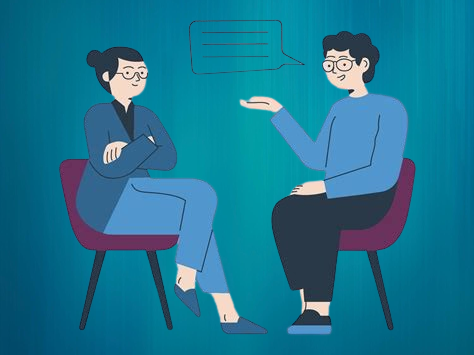
Depression is a complex mental health disorder characterized by a persistent feeling of sadness, hopelessness, and a lack of interest or pleasure in activities. It affects individuals across various demographics, often manifesting through a combination of emotional, psychological, and physical symptoms. Key emotional signs of depression include feelings of worthlessness, excessive guilt, and persistent irritability. Psychologically, it can lead to a diminished capacity for concentration and decision-making. Moreover, physical symptoms such as fatigue, changes in sleep patterns, and appetite disturbances are common, compounding the challenges faced by those affected.
The causes of depression are multifactorial, involving a combination of genetic, biological, environmental, and psychological factors. Life events such as trauma, loss, and significant life changes can trigger its onset. For many, the daily impact of depression is profound; individuals may struggle to maintain relationships, fulfill work obligations, or engage in previously enjoyed activities. The pervasive nature of this condition can create significant barriers to personal and professional fulfillment. Relationships often suffer due to withdrawal or irritability, while work performance may decline due to difficulties in concentration and motivation.
Moreover, untreated depression can lead to a cycle of despair that not only inhibits personal growth but can also have severe repercussions on physical health and well-being. Chronic untreated depression is associated with an increased risk of other health issues, reinforcing the urgent need for individuals to seek assistance. Recognizing the symptoms and understanding their impact on daily life is crucial. This awareness constitutes the essential first step toward recovery and emphasizes the importance of professional help, such as therapy, where individuals can find strategies and support tailored to their unique experiences.
The Role of Therapy in Depression Recovery

Therapy plays a crucial role in the recovery process for individuals experiencing depression. Various therapeutic approaches, including cognitive-behavioral therapy (CBT) and interpersonal therapy (IPT), have shown efficacy in aiding individuals to navigate their emotions and thought processes. CBT is particularly effective in identifying and challenging negative thought patterns that contribute to depressive feelings. This therapeutic method encourages clients to develop healthier coping mechanisms and adjust their perspectives, ultimately leading to improved emotional wellbeing.
Interpersonal therapy (IPT) focuses on enhancing interpersonal relationships and communication skills. It provides individuals with the tools necessary to resolve conflicts and address issues within their social circles that may exacerbate their depressive symptoms. Through these strategies, clients can cultivate supportive relationships, which are essential for their overall mental health recovery.
One of the undeniable advantages of engaging in therapy is the safe, confidential environment it provides. In therapy, individuals can freely express their feelings without the fear of judgment, allowing for an exploration of the deeper issues contributing to their depression. This space encourages self-reflection and the identification of unhealthy behaviors or thought processes, empowering individuals on their journey toward healing. Furthermore, the guidance of a trained mental health professional offers a structured framework for recovery that often surpasses self-diagnosis or informal support.
By pursuing therapy, individuals gain access to a wealth of knowledge and techniques developed over years of research and clinical practice. Therapists are trained to recognize the intricacies of depression and can tailor their approach to meet the unique needs of each client, fostering a more personalized recovery process. Consequently, therapy emerges as a vital component in the quest for mental wellness and effective depression recovery.
Breaking the Stigma: Why Seeking Help Matters

The stigma surrounding mental health and therapy remains a significant barrier for many individuals considering treatment for depression. This stigma often stems from misconceptions that equate mental health challenges with personal failure or weakness, leading to an internal struggle that discourages individuals from seeking help. Contrary to these beliefs, reaching out for support is a courageous decision that can be pivotal in the journey of recovery.
One prevalent misconception is that therapy is only for those in crisis. In reality, therapeutic interventions can benefit anyone facing emotional upheaval, whether it is a temporary setback or a chronic condition like depression. Attending therapy is not a sign of being broken but rather a proactive step towards personal growth and healing. Many individuals who have sought treatment report transformative experiences, emphasizing that therapy provided them with valuable tools to manage their emotions and create healthier coping mechanisms.
Moreover, the narrative surrounding therapy needs to shift from one of fear and shame to one of empowerment. Personal stories often reveal that individuals who sought help found an unexpected sense of relief and hope. For instance, one participant in a mental health discussion stated, “I was initially scared to talk about my depression, but once I did, I realized it was a weight lifted off my shoulders. Therapy taught me more about myself than I ever thought possible.” Such testimonials highlight that seeking help is not an admission of defeat but rather an affirmation of one’s strength and resilience.
By openly discussing mental health and normalizing the experience of seeking therapy, we can collectively break down the barriers that contribute to the stigma. Such actions pave the way for better mental health outcomes and foster an environment where individuals feel empowered to address their emotional struggles, ultimately leading to more successful recovery from depression.
Building a Supportive Network for Continued Recovery
Recovering from depression is often a multifaceted journey, where the integration of professional support through therapy and a nurturing personal network can significantly enhance outcomes. Engaging with family, friends, and support groups plays a pivotal role in establishing a comprehensive recovery framework. A supportive network not only provides emotional nourishment but also offers practical assistance and accountability, which are essential in managing depressive symptoms.
Effective communication is key in fostering understanding and support among loved ones. When expressing needs, it is beneficial to be open and clear about what kind of support is desired. This might involve explaining specific challenges faced during the recovery journey, such as feelings of isolation or times of overwhelming sadness. By articulating these challenges, friends and family can better understand their loved one’s situation, making it easier for them to provide meaningful help. Additionally, encouraging loved ones to ask questions can promote a dialogue that deepens connections, ultimately leading to more effective support.
Beyond close relationships, engaging with peer support groups can be an instrumental step in recovery. These groups provide a platform for individuals to share experiences, challenges, and coping strategies in a safe environment. Connecting with others who are navigating similar struggles can foster a sense of belonging and validation, which is essential for emotional healing. Community resources, such as mental health organizations or local wellness programs, also offer valuable support and connections to services that can aid in ongoing mental health maintenance.
In conclusion, creating and maintaining a robust support system is integral to the recovery from depression. By blending professional therapy with a strong community surrounding the individual, the likelihood of achieving lasting recovery is greatly improved. This collaborative approach not only enhances the effectiveness of therapeutic interventions but also reinforces the importance of social connections in mental health recovery.


